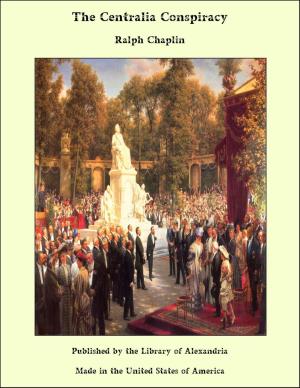The Drama of Love and Death: A Study of Human Evolution and Transfiguration
Nonfiction, Religion & Spirituality, New Age, History, Fiction & Literature| Author: | Edward Carpenter | ISBN: | 9781465536624 |
| Publisher: | Library of Alexandria | Publication: | March 8, 2015 |
| Imprint: | Language: | English |
| Author: | Edward Carpenter |
| ISBN: | 9781465536624 |
| Publisher: | Library of Alexandria |
| Publication: | March 8, 2015 |
| Imprint: | |
| Language: | English |
Love and Death move through this world of ours like things apart—underrunning it truly, and everywhere present, yet seeming to belong to some other mode of existence. When Death comes, breaking into the circle of our friends, words fail us, our mental machinery ceases to operate, all our little stores of wit and wisdom, our maxims, our mottoes, accumulated from daily experience, evaporate and are of no avail. These things do not seem to touch or illuminate in any effective way the strange vast Presence whose wings darken the world for us. And with Love, though in an opposite sense, it is the same. Words are of no use, all our philosophy fails—whether to account for the pain, or to fortify against the glamour, or to describe the glory of the experience. These figures, Love and Death, move through the world, like closest friends indeed, never far separate, and together dominating it in a kind of triumphant superiority; and yet like bitterest enemies, dogging each other’s footsteps, undoing each other’s work, fighting for the bodies and souls of mankind. Is it possible that at length and after ages we may attain to liberate ourselves from their overlordship—to dominate them and make them our ministers and attendants? Can we wrest them from their seeming tyranny over the human race, and from their hostility to each other? Can we persuade them to lay aside their disguise and appear to us for what they no doubt are—even the angels and messengers of a new order of existence? It is a great and difficult enterprise. Yet it is one, I think, which we of this generation cannot avoid. We can no longer turn our faces away from Death, and make as if we did not perceive his presence or hear his challenge. This age, which is learning to look the facts of Nature steadily in the face, and see through them, must also learn to face this ultimate fact and look through it. And it will surely—and perhaps only—be by allying ourselves to Love that we shall be able to do so—that we shall succeed in our endeavor. For after all it is not in the main on account of ourselves that we cherish a grudge against the ‘common enemy’ and dispute his authority, but for the sake of those we love. For ourselves we may be indifferent or acquiescent; but somehow for those others, for those divine ones who have taken our hearts into their keeping, we resent the idea that they can perish. We refuse to entertain the thought. Love in some mysterious way forbids the fear of death. Whether it be Siegfried who tramples the flaming, circle underfoot, or the Prince of Heaven who breaks his way through the enchanted thicket, or Orpheus who reaches his Eurydice even in the jaws of hell, or Hercules who wrestles with the lord of the underworld for Alcestis—the ancient instinct of mankind has declared in no uncertain tone that in this last encounter Love must vanquish.
Love and Death move through this world of ours like things apart—underrunning it truly, and everywhere present, yet seeming to belong to some other mode of existence. When Death comes, breaking into the circle of our friends, words fail us, our mental machinery ceases to operate, all our little stores of wit and wisdom, our maxims, our mottoes, accumulated from daily experience, evaporate and are of no avail. These things do not seem to touch or illuminate in any effective way the strange vast Presence whose wings darken the world for us. And with Love, though in an opposite sense, it is the same. Words are of no use, all our philosophy fails—whether to account for the pain, or to fortify against the glamour, or to describe the glory of the experience. These figures, Love and Death, move through the world, like closest friends indeed, never far separate, and together dominating it in a kind of triumphant superiority; and yet like bitterest enemies, dogging each other’s footsteps, undoing each other’s work, fighting for the bodies and souls of mankind. Is it possible that at length and after ages we may attain to liberate ourselves from their overlordship—to dominate them and make them our ministers and attendants? Can we wrest them from their seeming tyranny over the human race, and from their hostility to each other? Can we persuade them to lay aside their disguise and appear to us for what they no doubt are—even the angels and messengers of a new order of existence? It is a great and difficult enterprise. Yet it is one, I think, which we of this generation cannot avoid. We can no longer turn our faces away from Death, and make as if we did not perceive his presence or hear his challenge. This age, which is learning to look the facts of Nature steadily in the face, and see through them, must also learn to face this ultimate fact and look through it. And it will surely—and perhaps only—be by allying ourselves to Love that we shall be able to do so—that we shall succeed in our endeavor. For after all it is not in the main on account of ourselves that we cherish a grudge against the ‘common enemy’ and dispute his authority, but for the sake of those we love. For ourselves we may be indifferent or acquiescent; but somehow for those others, for those divine ones who have taken our hearts into their keeping, we resent the idea that they can perish. We refuse to entertain the thought. Love in some mysterious way forbids the fear of death. Whether it be Siegfried who tramples the flaming, circle underfoot, or the Prince of Heaven who breaks his way through the enchanted thicket, or Orpheus who reaches his Eurydice even in the jaws of hell, or Hercules who wrestles with the lord of the underworld for Alcestis—the ancient instinct of mankind has declared in no uncertain tone that in this last encounter Love must vanquish.















